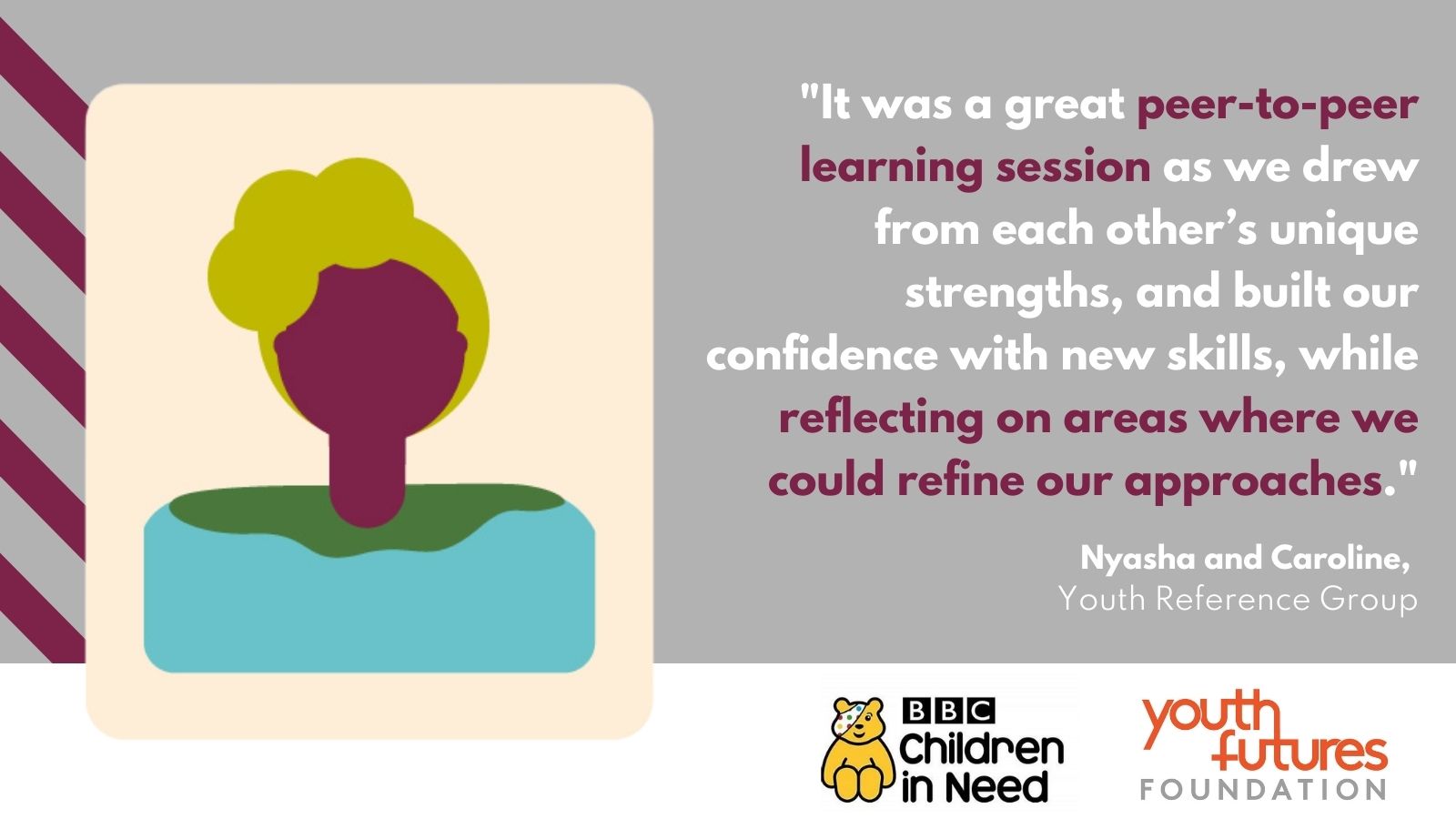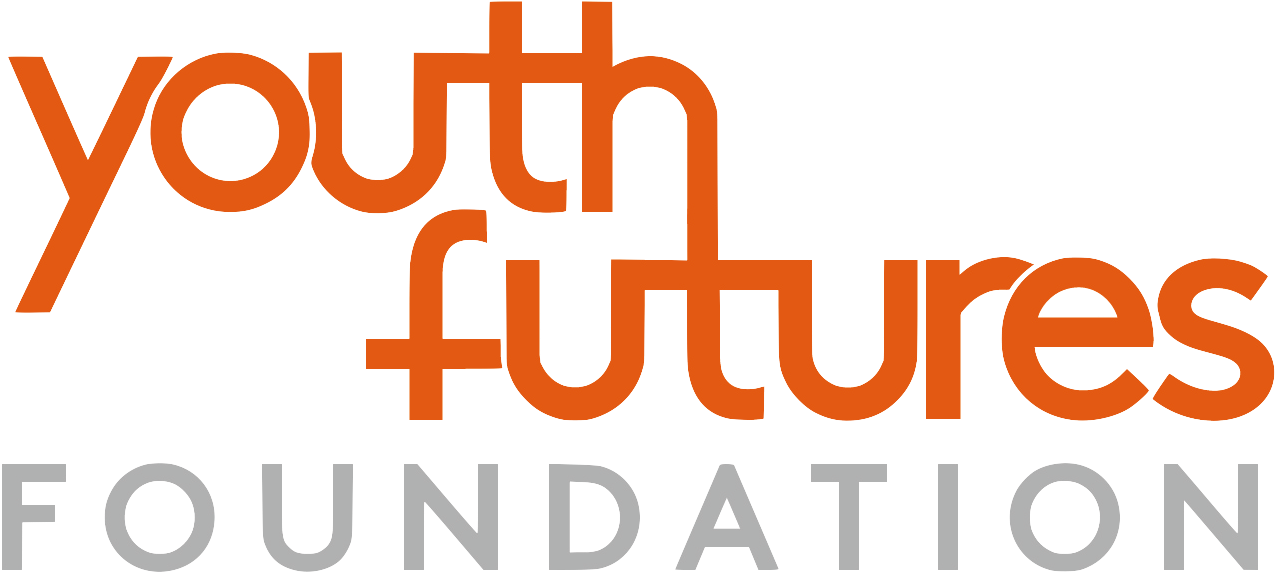Reflecting on our experience as part of the Youth Reference Group


 In this blog post, Nyasha and Caroline, members of our Youth Reference Group, reflect on their experience as peer evaluators, supporting the evaluation of our Inspiring Futures fund. They also look ahead at some of the upcoming evaluation activities and what this involves.
In this blog post, Nyasha and Caroline, members of our Youth Reference Group, reflect on their experience as peer evaluators, supporting the evaluation of our Inspiring Futures fund. They also look ahead at some of the upcoming evaluation activities and what this involves.
What is Inspiring Futures?
Inspiring Futures is a programme of grants totalling £7 million awarded to 85 grantees: nonprofit organisations working on the frontline across England. The purpose of the funding is to help young people facing disadvantages and or discrimination on their journey toward fulfilling employment, particularly if this has been exacerbated by the pandemic.
Responding to the challenges of the pandemic
From disrupted education, further strained mental health, and a job market that is more challenging to enter among many other areas, it is clear that this generation has been one of the hardest hit. A report from the Commissioner for Children and Young People described the “severe impact,”i and the Office for Statistics Regulation highlighted visibility, vulnerability, and voice when it comes to thinking about addressing the effects.
How we became involved in the evaluation of Inspiring Futures
Our remit as members of the Youth Reference Group (YRG) is to complement the work of independent assessor, Cordis Bright, and support the evaluation of Inspring Futures to understand how the funding enabled organisations to adapt to the pandemic and support children and young people. Anisha and Louise, two colleagues of ours in the same team, wrote about their experiences of the YRG in a fantastic blog post here. We are involved because the lead partners Youth Futures Foundation and BBC Children In Need (BBC CiN) values youth voice, lived experience, and co-creation to continuously improve youth work, service design, evaluation and more.
Developing the focus groups
Alongside Cordis Bright, our role is to support and facilitate the running of focus groups with young people who have benefitted from the grants, to gather their feedback. A focus group is a key method in qualitative research, that generally involves gathering non-numerical information like opinions, experiences, or the ‘what, how and why’ to develop in-depth insights.
We worked on three tasks over the last few months. First, we worked on a topic guide for the focus groups. A topic guide is like a script that we use during the focus groups with young people to guide the conversations. Cordis Bright provided us with a draft topic guide covering the key questions that they wanted to answer as part of the evaluation. As a group, we then read through the guide and provided our feedback on topics such as structure (did the order of questions make sense?) and language (will the questions be understandable / accessible to all?). Our feedback was then incorporated into it. Through this, we learnt exactly what a topic guide is and how to best run focus groups.
Delivering focus groups for young beneficiaries
Following this, we met to prepare for the focus groups. We used role play to practice asking questions in different ways and developed top tips for working with young people. It was a great peer-to-peer learning session as we drew from each other’s unique strengths, and built our confidence with new skills, while reflecting on areas where we could refine our approaches. Putting ourselves in participants’ shoes also increased empathy.
In total, we will facilitate eight focus groups with a range of charities and social enterprises across the country. So far, I (Caroline) have facilitated the first group with the support of researchers from Cordis Bright. I spoke to young people from a charity supported by Inspiring Futures. They openly shared their experiences, and it was fascinating to hear about the benefits, their experiences of Covid-19, as well as some learning points for the grantee. Being involved in this focus group has given me great experience running interviews, as well as the confidence to speak to different people.
Next steps
Over the next few months, our next steps will be to carry out more focus groups with young people to make sure we gain a range of experiences from the different grantee organisations. Working with Cordis Bright, we will also support the communications and reporting of the findings to different stakeholders, so that we can share what we have learnt during the evaluation.
We shall continue to consider what we can learn from the delivery of Inspiring Futures that supports the sustainability of grantee organisations, as they move from dealing with the impact of the pandemic, to new challenges, like the cost of living crisis. As the World Economic Forum says, we have been left unemployed by Covid-19 in far greater numbers than adults. They also include analysis from a United Nations agency, “Unless action is taken to tackle the way the pandemic has affected young people’s employment opportunities, many of them could continue to struggle for decades, according to the International Labour Organization.”ii Factoring in an intersectional lens, such as gender, ethnicity, disability, many of us face added obstacles.
Seeing and supporting the wonderful work that grantees are doing and collaborating with the brilliant teams at Cordis Bright, Youth Futures and BBC Children in Need leaves us inspired that we can solve these tough, urgent problems collectively. Creating and delivering long-lasting opportunities is our priority to create better futures for every young person, informed by a culture of learning and improvement.


 In this blog post, Nyasha and Caroline, members of our Youth Reference Group, reflect on their experience as peer evaluators, supporting the evaluation of our Inspiring Futures fund. They also look ahead at some of the upcoming evaluation activities and what this involves.
In this blog post, Nyasha and Caroline, members of our Youth Reference Group, reflect on their experience as peer evaluators, supporting the evaluation of our Inspiring Futures fund. They also look ahead at some of the upcoming evaluation activities and what this involves.